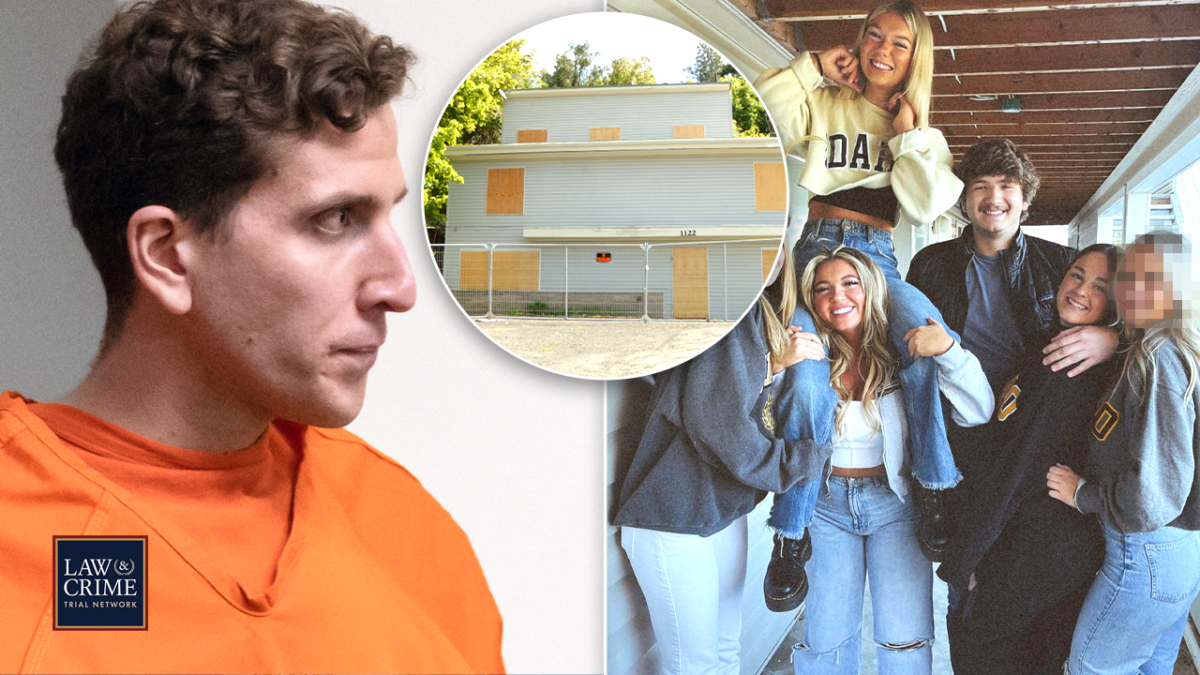Prosecutors plan to seek the death penalty against Bryan Kohberger, the man accused of murdering four University of Idaho students, according to a document filed Monday.
The announcement comes days after Kohberger’s defense filed a document saying no DNA belonging to the victims was found in his car, apartment or office.
Prosecutors called the murders “especially heinous” and said Kohberger “has exhibited a propensity to commit murder which will probably constitute a continuing threat to society.”
Other statutes were cited as reasons why prosecutors will seek to have Kohberger put to death for the murders of Maddie Mogen, Kaylee Goncalves, Ethan Chapin and Xana Kernodle.
Kohberger has pleaded not guilty.
The revelation from Kohberger’s lawyers came in response to a motion for a protective order sought by prosecutors for Investigative Genetic Genealogy used in the case. Prosecutors do not want to turn over the information developed by the FBI to Kohberger’s defense team. Prosecutors claim records were not kept and they want to protect information of Kohberger’s relatives.
Kohberger’s defense team believes they were entitled to the information in discovery. They used the response to the prosecution’s motion to criticize the investigation. They also claim the state is “hiding its entire case.”
“The investigation has provided precious little,” Kohberger’s defense attorney Jay Weston Logsdon wrote. “There is no connection between Mr. Kohberger and the victims. There is no explanation for the total lack of DNA evidence from the victims in Mr. Kohberger’s apartment, office, home, or vehicle.”
Investigative Genetic Genealogy led law enforcement to identify Kohberger as a potential suspect, according to prosecutors. Agents took that route after they didn’t get a hit for the DNA found on a knife sheath in CODIS, a database of DNA profiles for felons.
“The State apparently only wants to prevent Mr. Kohberger from seeing how the IGG profile was created and how many other people the FBI chose to ignore during their investigation,” Weston Logsdon wrote.

Read Related Also: Indiana Officials Deny They Were Directed by FBI to Stop Bryan Kohberger During Cross-Country Trip
‘No connection’ to Idaho Four victims
Defense attorney James Bogen addressed the defense team’s claim there is “no connection” between Kohberger and the four victims on Law&Crime’s Sidebar podcast.
“If they’re claiming there’s no connection, there have been cell tower pings which are not conclusive in themselves,” Bogen said. “His touch DNA was found on the knife sheath. That can be addressed, too, by the fact that touch DNA can be transferred by more than just the perpetrator touching the item in question.”
Bogen said the defense will have to back up their claims about a lack of connection between Kohberger and the victims at trial.
When police charged Kohberger with the murders late last year, they claimed cell phone evidence placed him in the area of the King Road home on a dozen occasions prior to the homicides. Kohberger’s defense team did not address that claim in their response.
Bogen also commented on the lack of DNA belonging to the victims in Kohberger’s home, office or car. Prosecutors claim Kohberger, clad in black, stabbed the four victims and left the scene in his white Hyundai Elantra.
“That’s certainly helps the defense,” Bogen said. “Now, if there happens to be some evidence that he did some complete deep cleaning, that’s one thing that could possibly mitigate that for the prosecution.”
A source told Law&Crime earlier this year that Kohberger “bleached” his car. Prosecutors have not revealed whether they believe a cleanup occurred.
Kohberger’s team revealed other information about DNA in the case. They claim two other male DNA profiles found in the King Road home were uploaded to CODIS. A third from a glove found outside of the home was also uploaded to CODIS. Weston Logsdon writes that detectives obtained another DNA sample from a discarded cigarette butt from another possible suspect.
Heading back to court
Kohberger will be back in court Tuesday afternoon for a hearing on their requests to compel discovery. They claim the prosecution is not turning over evidence. The defense has claimed in some filings that they “know” the state possesses exculpatory evidence, meaning evidence that helps their client.
Kohberger’s defense team also wants the state to turn over materials related to the grand jury prosecutors empaneled to indict him. They’ve said they plan to contest the indictment.
To date, the state and defense have failed to reach an agreement on which materials would be disclosed.
“The defense is not entitled to grand jury materials as a regular part of discovery. And really, this strikes me as a motion where they’re more trying to make a record than anything else,” Bogen said.
The defense, which is exercising Kohberger’s right to a speedy trial, says the dispute over grand jury materials is impacting their ability to prepare for trial. The trial is set for October.
Have a tip we should know? [email protected]









